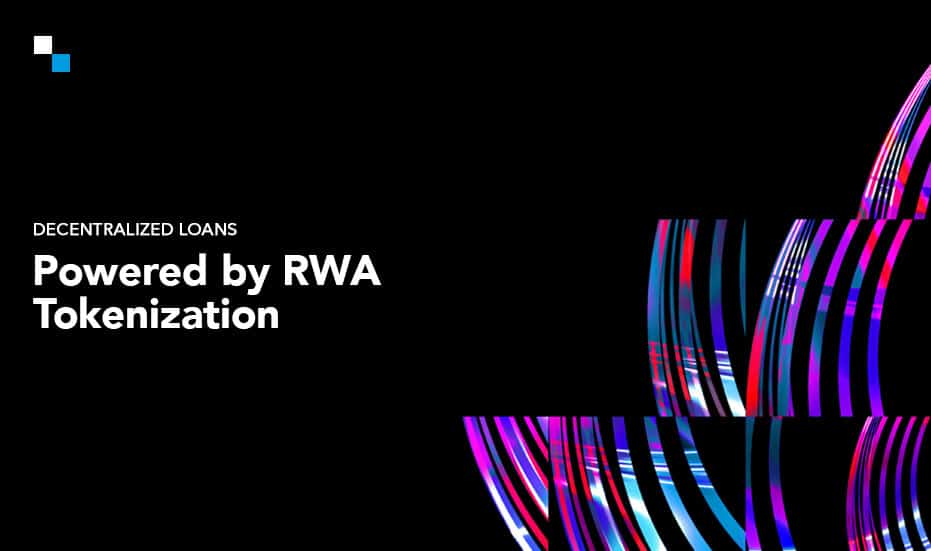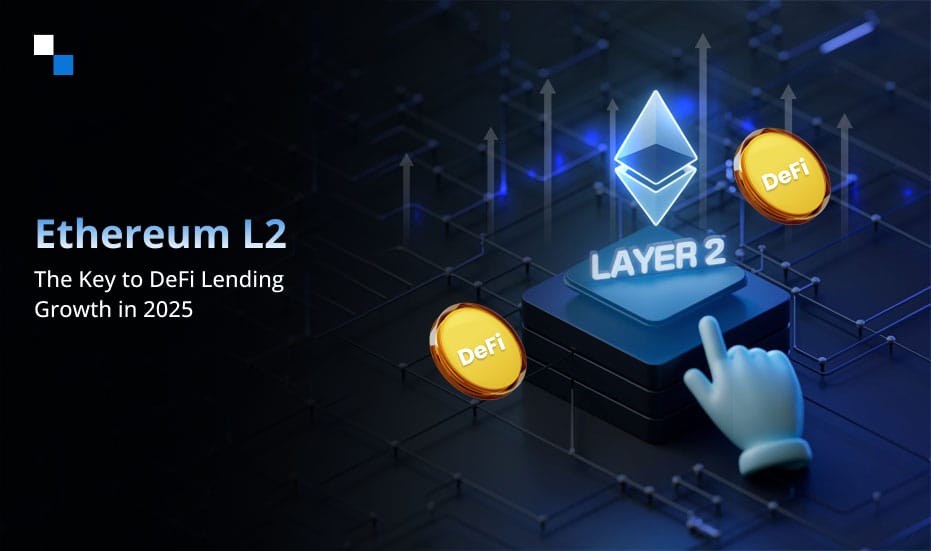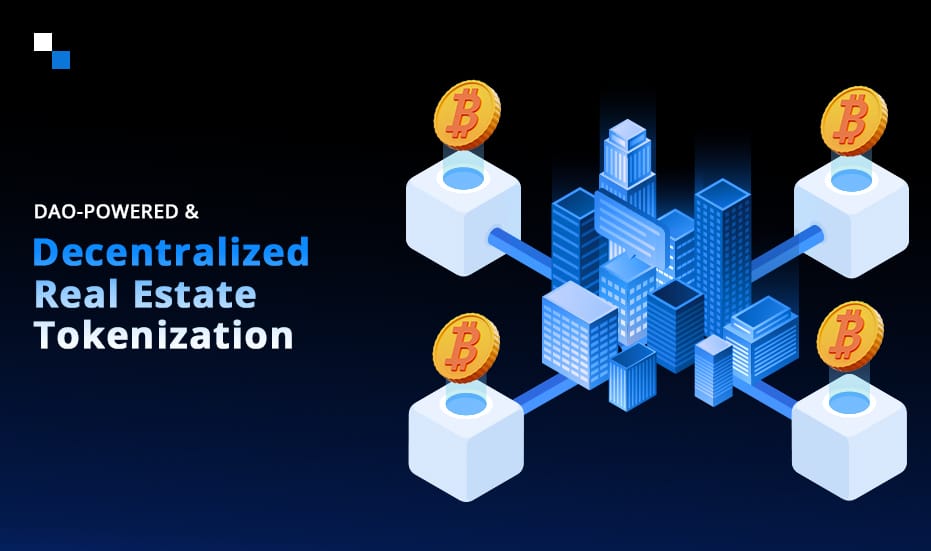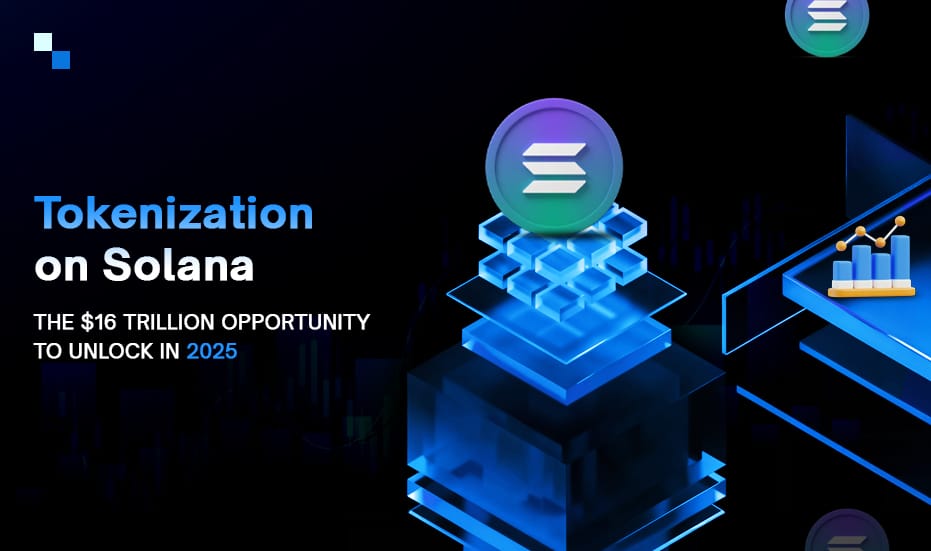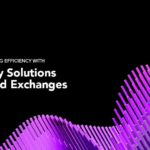
Liquidity Solutions in Hybrid Crypto Exchanges: Enhancing Trading Efficiency
June 21, 2024
How ERC-7007 is Winning in NFT Standards Race?
June 21, 2024The traditional lending system, often riddled with limitations, is undergoing a paradigm shift with the emergence of DeFi. At the heart of this transformation lies Real-World Asset (RWA) Tokenization. This blog delves deeper into how RWA tokenization unlocks a world of possibilities for decentralized loans, empowering both borrowers and lenders.
RWA Tokenization: From Real Assets to Digital Tokens
Imagine transforming ownership of real estate, invoices, or even intellectual property into tradable digital tokens. That’s the essence of RWA tokenization. These tokens reside on a blockchain network, a secure and transparent distributed ledger. Each token represents a fractional unit of ownership, creating a more liquid and accessible market for these assets.
RWA Tokenization: A Catalyst for Decentralized Lending
Here’s a closer look at how RWA tokenization unlocks a new era of RWA-backed DeFi Loans:
Expanding the Collateral Landscape
Borrowing traditionally hinges on factors like credit score and income history, often excluding many individuals and businesses. RWA tokenization provides a solution. Borrowers can leverage tokenized representations of their real estate, outstanding invoices, or even patents to secure loans, regardless of their credit score. It fosters greater financial inclusion, opening doors for those who might not qualify for traditional loans.
Unlocking Asset Liquidity for Borrowers
Tokenized real-world assets offer increased liquidity compared to their physical counterparts. Since these tokens represent fractional ownership, they can be easily traded on DeFi marketplaces. It empowers borrowers to unlock the value tied up in their assets and access immediate liquidity through loan options. Imagine a small business owner needing a quick loan to bridge a cash flow gap. They can tokenize an invoice representing an upcoming payment and use it as collateral to secure a loan on a DeFi platform.
Streamlining Loan Origination and Processing
Smart contracts, self-executing code on the blockchain, automate loan terms and conditions. It eliminates the need for lengthy paperwork and manual processing associated with traditional loan applications. Borrowers can access loan options quickly and efficiently through user-friendly DeFi platforms. Imagine the difference between weeks spent gathering documents for a traditional loan application and a streamlined DeFi process completed in minutes.
Transparency and Security: Building Trust in Decentralized Loans
Blockchain technology offers an immutable and transparent record of transactions. It empowers lenders with greater confidence in the legitimacy of collateral and reduces the risk of fraud. Lenders can easily verify the ownership and transaction history of tokenized assets. Borrowers also benefit from increased transparency regarding loan terms, interest rates, and repayment schedules.
Diversification Opportunities for Lenders
DeFi loan markets present lenders with a wider range of investment opportunities beyond traditional loan products. They can diversify their portfolios by investing in a variety of tokenized real-world assets, potentially generating higher returns compared to traditional fixed-income investments. Imagine a lender traditionally restricted to investing in government bonds. DeFi platforms allow them to explore real estate loans, invoice financing, or even invest in the intellectual property of a promising startup.
Fractional Ownership and Granular Investment
RWA tokenization enables fractional ownership of assets, allowing investors to participate in the loan market with smaller capital contributions. It opens doors for a broader range of individuals to participate in DeFi lending and potentially earn passive income. Imagine someone with limited investment capital traditionally excluded from real estate investing. DeFi allows them to invest in a fraction of a tokenized property, gaining exposure to the real estate market with a smaller investment.
Lower Transaction Costs
By eliminating the need for intermediaries like banks, DeFi loan platforms can offer lower transaction costs compared to traditional loan options. This benefits both borrowers and lenders by reducing the overall cost of borrowing and lending capital. Imagine the difference between a traditional loan with multiple processing fees and a DeFi loan with minimal transaction costs on the blockchain.
Global Reach and Accessibility
Decentralized lending platforms operate on a global scale, transcending geographical boundaries. It allows borrowers from anywhere in the world to access loan options, while lenders can diversify their portfolios with international investment opportunities. Imagine a small business in a developing country needing capital for expansion. DeFi platforms allow them to connect with lenders from around the world, bypassing traditional limitations on geographic location.
Challenges and Solutions for RWA Tokenization in DeFi Loans
While RWA tokenization unlocks exciting possibilities, there are challenges to address:
- Regulatory Uncertainty: Regulatory frameworks surrounding RWA tokenization and DeFi are still evolving. Clear regulations are essential for fostering innovation and protecting investors.
Solution:
Establishing clear and consistent regulatory frameworks, fostering collaboration between regulators and industry stakeholders, and promoting best practices for tokenization. Countries like the USA, UK, Switzerland, etc., are introducing bills for regulatory clarity.
- Valuation and Risk Assessment: Accurately valuing tokenized RWAs and assessing associated risks requires robust valuation methods and risk management strategies within DeFi platforms. Traditional valuation methods might not be directly applicable to tokenized assets.
Solution:
DeFi platforms can develop reliable frameworks to assess the value of these assets and the corresponding risks for lenders. Good news is that they are proactively working on it.
- Liquidity Risks: The liquidity of tokenized assets can vary depending on the underlying asset and market conditions. For instance, a tokenized invoice representing a payment from a small, unknown company might be less liquid compared to a token representing a portion of a well-established company’s real estate. DeFi platforms need to implement strategies to mitigate liquidity risks, such as creating liquidity pools or establishing secondary markets for these tokens. With advancements in technology, new solutions are coming in.
Solution:
Incentivizing market-making for RWA tokens, developing liquidity pools and automated market makers, and fostering the creation of secondary markets.
Despite these challenges, the potential of RWA tokenization for decentralized lending is undeniable. As the technology matures, regulatory frameworks are established, and best practices are implemented, we can expect DeFi to play a transformative role in shaping a more inclusive and efficient financial future.

The Road Ahead: A Future Powered by Decentralized Lending
RWA tokenization marks a significant shift in the loan landscape. Here’s a glimpse into the future:
- Traditional lenders might embrace DeFi: Traditional financial institutions might integrate DeFi elements into their offerings, potentially creating a hybrid lending system.
- New DeFi lending products and services: We can expect a proliferation of innovative DeFi lending products and services catering to various borrower and lender needs.
- Increased focus on user experience: DeFi platforms will likely prioritize user-friendly interfaces and educational resources to attract a broader user base.
- Regulatory clarity paves the way: As regulations evolve to accommodate DeFi, the market is expected to experience significant growth and mainstream adoption.
Final Words
In conclusion, RWA tokenization unlocks a new era of decentralized lending, empowering borrowers and lenders alike. The future of finance is poised for a paradigm shift, driven by the potential of this revolutionary technology. DeFi, powered by RWA tokenization, has the potential to create a more inclusive, efficient, and transparent financial system for all. Want to be a part of the future? Get in touch with Antier and schedule a consultation.
